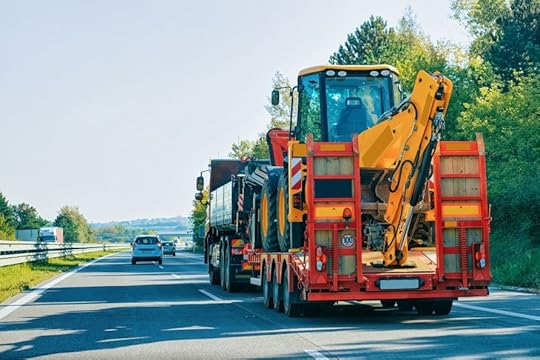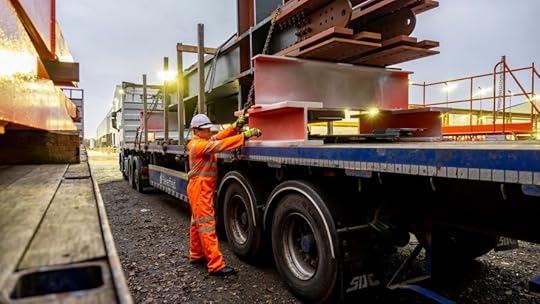Choosing Equipment Trailers: A Buying Guide for Small Business Owners

Are you looking for the perfect equipment trailer for your small business? Whether you’re in landscaping, construction, or general hauling, the right trailer can save you time, protect your tools, and make every job run more smoothly.
However, there are a lot of choices out there. Flatbeds, enclosed trailers, different load limits, and endless features can leave you second-guessing your decision. The good news? You don’t need to be a trailer expert to make the right call. You only need to know what matters.
In this article, you’ll get simple tips, valuable insights, and a better idea of what works best for your business. Read on for the details!
Start With Your Business NeedsBefore looking at equipment trailers, it’s essential to know what you need to carry. A trailer must be strong enough to handle heavy equipment or heavy-duty tools. Some businesses move large machines across job sites; others have smaller tools like lawnmowers or building supplies.
The distance you travel and how often you haul equipment also matter. Some trailers are better for short trips, while others are built for long-distance cargo hauls. Businesses that deal with many vehicles or cargo types should look for trailers that offer more loading space and support.
When looking at different trailers for sale, use your list of needs to narrow your options. This will help you focus on models that fit your business needs instead of getting distracted by features you don’t need.
Decide Between Open and Closed TrailersA good place to begin is choosing between open and enclosed equipment trailers. Here’s a quick breakdown of each:
Open trailers: These trailers make loading and unloading simple. They work well for heavy machinery that doesn’t need protection from the weather. These trailers often carry larger loads and help with quick equipment loading.Enclosed trailers: For more protection, enclosed trailers are a better choice. They keep your tools safe from rain, dirt, and theft. This is useful when working in crowded areas or carrying valuable gear. Some enclosed models also have custom trailer features like shelves, tie-down points, and extra storage space.Each type has its strengths, so it helps to consider your daily needs, types, and work conditions. This will help you decide which trailer best suits your business.
Choose the Right AxlesAxles play a big role in how your equipment trailer performs. They affect how much weight the trailer can carry and how smoothly it handles on the road.
Single-axle trailers work well for lighter loads. They’re often more cost-efficient and easier to move in tight spaces, making them suitable for light-duty jobs and short trips.
Tandem axles offer better support for heavier equipment or larger loads. For instance, if you’re shipping multiple cars, tandem axles provide more stability, higher weight capacity, and a smoother ride. They reduce strain on your vehicle and lower the risk of damage during transport, making them a better choice than single-axle trailers for transporting equipment across job sites and long distances.
Look at the Frame and FloorA strong frame helps your trailer last longer and perform better. Most equipment trailers use steel frames because they’re tough and reliable. Some models use aluminum frames, which are lighter and easier to tow. Both can work well, but it’s best to choose quality trailers made with strong and long-lasting materials.
The trailer floor is just as crucial. A solid floor keeps your cargo steady and makes loading easier. Wood decks are common because they’re strong and easy to repair. However, some jobs need more flexibility.
For example, deck-over trailers or a deck-over tilt trailer can be helpful when you carry wide vehicles or need better load angles. These trailers offer more space and allow for smooth equipment loading, which is useful for heavy machinery and farm equipment.
Check for Quality and Safety FeaturesAs you explore different trailers, pay close attention to the features that improve safety and performance. Quality trailers usually include helpful details like light-emitting diode (LED) lighting, strong tie-down points, and a built-in spare tire. These features keep your load secure and help you stay visible on the road.
Other safety features, such as solid ramps and protective side rails, make loading and unloading easier and safer. These parts reduce the risk of slips or damage when handling heavy machinery or wide vehicles.
The best part? Many trailers come in styles like bumper pull or detachable gooseneck. You should also look for trailers with corrosion-resistant frames, tough flooring, and smart layouts that support various cargo types.
Understand Weight Ratings
Weight ratings are crucial when comparing heavy equipment trailers. Every equipment trailer comes with a gross vehicle weight rating (GVWR), which includes the trailer’s weight and the maximum load it can safely carry. A trailer that supports the right weight keeps your business moving and your crew safe.
Exceeding the weight limit can damage your vehicle’s trailer and put you at risk during transport. That’s why it helps to choose durable trailers designed for heavy-duty equipment.
Check if the trailer’s payload matches the largest loads you expect to carry. Whether you move wide vehicles, farm equipment, or use an equipment hauler, staying within the correct weight rating is key for safety and performance.
ConclusionFinding the right equipment trailer for your small business takes more than just picking the first option you see. It involves understanding your daily needs, the type of cargo you move, and the conditions you work in.
As you explore trailers for sale, focus on models that offer real value, long-term use, and the safety your work demands. With the right equipment trailer in place, your business stays ready for every haul, every day.
The post Choosing Equipment Trailers: A Buying Guide for Small Business Owners appeared first on Geek Mamas .



